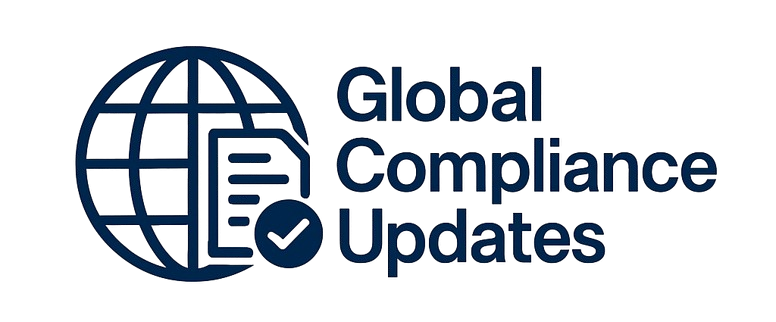Learning Management Systems (LMS) are important tools for assuring and demonstrating that pharma companies maintain their staff training, and their efforts are up-to-date. These systems often boast great functionality but also have limitations that must be overcome for companies to use them effectively. A specific area that is not well understood is the development of training curricula in LMS systems, which presents its own unique challenges and takes far more time to implement than is commonly thought. In addition, many of us have training as an ancillary responsibility and do not have the luxury of time to create and maintain a complex array of curricula.
If you and your colleagues want to maximize the benefits of a LMS and avoid the headaches, then join us for this 90-minute interactive session.
WHY SHOULD YOU ATTEND?
Compliance considerations, your quality culture, and work culture are all important points of focus. Additionally, where does employee “onboarding” end and real “job training” start? Your onboarding effort is critical in so many other ways too, as it represents your only opportunity at a first impression, and allows you to shape early motivation for your new employees. Although many hiring managers and other supervisory personnel struggle with onboarding, there are simple steps you can take to ensure a successful and compliant program.
This course will address the issues that accompany onboarding new or transferred employees and enable you to navigate them successfully.
AREA COVERED
- What a true Pharma curriculum is
- Requirements for Pharma curricula
- What a true Pharma curriculum is not
- Why is setting up curricula so complicated?
- Obtain details of employee job functions that are necessary for setting up curricula
- How to create intuitive curricula
- Fighting the LMS – common issues
- Use LMS functionality
- Audit considerations
LEARNING OBJECTIVES
- Articulate what constitutes a Pharma curriculum
- Distinguish a true Pharma curriculum from common misconceptions regarding Pharma curricula
- Work effectively with peers and management to set up curricula for their organizations
- Obtain details of employees’ job functions that are necessary for setting up curricula
- Create curricula that are intuitive for employees
- Demonstrate training compliance to auditors through the effective use of curricula
WHO WILL BENEFIT?
This course will be of benefit to training employees, both individual contributors and management, who are responsible for the creation and management of Pharma training curricula such as:
- LMS administrators
- Trainers
- Training managers and their supervisors
- Subject matter experts
- Regulatory management
- QA management
- Consultants
- Quality Managers
- Audit Managers
- Quality Analysts
Compliance considerations, your quality culture, and work culture are all important points of focus. Additionally, where does employee “onboarding” end and real “job training” start? Your onboarding effort is critical in so many other ways too, as it represents your only opportunity at a first impression, and allows you to shape early motivation for your new employees. Although many hiring managers and other supervisory personnel struggle with onboarding, there are simple steps you can take to ensure a successful and compliant program.
This course will address the issues that accompany onboarding new or transferred employees and enable you to navigate them successfully.
- What a true Pharma curriculum is
- Requirements for Pharma curricula
- What a true Pharma curriculum is not
- Why is setting up curricula so complicated?
- Obtain details of employee job functions that are necessary for setting up curricula
- How to create intuitive curricula
- Fighting the LMS – common issues
- Use LMS functionality
- Audit considerations
- Articulate what constitutes a Pharma curriculum
- Distinguish a true Pharma curriculum from common misconceptions regarding Pharma curricula
- Work effectively with peers and management to set up curricula for their organizations
- Obtain details of employees’ job functions that are necessary for setting up curricula
- Create curricula that are intuitive for employees
- Demonstrate training compliance to auditors through the effective use of curricula
This course will be of benefit to training employees, both individual contributors and management, who are responsible for the creation and management of Pharma training curricula such as:
- LMS administrators
- Trainers
- Training managers and their supervisors
- Subject matter experts
- Regulatory management
- QA management
- Consultants
- Quality Managers
- Audit Managers
- Quality Analysts
Speaker Profile
 Michael Esposito
Michael Esposito
Michael Esposito has over 30 years’ experience in the pharmaceutical industry and 17 years’ experience in GMP training and document management. He has worked for Wyeth Pharmaceuticals, Pfizer, and Johnson & Johnson's Consumer Healthcare Division in a variety of areas including Packaging, project administration, Quality Assurance, Government Contracts, translations, systems training, and international operations. He collaborated in the development and implementation of the training portion of the Consent Decree workplan for Johnson & Johnson Consumer Healthcare and revised their introductory GMP course. He is a member of the training organizations GMP Training Educators Association and Association for GXP Excellence and …
Upcoming Webinars


Effective Communication: Ensuring Clarity, Accountability a…

2-Hour Virtual Seminar on Workplace Investigations 101: How…

Employers Should Prepare for Immigration Raids in 2026! Thi…

AI for Excel Professionals: Enhancing Productivity with Cha…

The Importance of the first 5 seconds when presenting

Negotiating Skills For Professional Results - Winning Strat…

Workplace Behavior in 2026: Tackling Conflicts and Incivili…

FDA Recommendations for Artificial Intelligence/Machine Lea…

Validation Statistics for Non-Statisticians

Bootcamp for New Managers and Supervisors: Develop These Es…


Interactive dashboards & analytics in Excel


Enhancing Project Management with Storytelling Techniques

4-Hour Workshop on Data Simplified: Sorting and Filtering, …

Creating Your 2026 Marketing Strategy

The Language of Leadership: Is Your Communication Style As …

ChatGPT for Innovative Business Advisory Services for Accou…


Utilizing A Proven Process When Conducting Sensitive, Inter…

How to Write Procedures to Avoid Human Errors

Human Factors Usability Studies Following ISO 62366 and FDA…

Why EBITDA Doesn't Spell Cash Flow and What Does?

Mastering DAX Patterns in the Era of AI & Copilot

Establishing Appropriate Quality Metrics and Key Performanc…


IRS Form 1099 Reporting: Compliance Requirements

FDA QMSR Explained: How the QMSR Replaces the QSR

How to Manage the Legal Landmine of the FMLA, ADA and Worke…

Understanding EBITDA – Definition, Formula & Calculation

Tattoos, hijabs, piercings, and pink hair: The challenges …

FDA Compliance And Laboratory Computer System Validation

Medical Device Hazard analysis following ISO 14971




Excel Spreadsheets; Develop and Validate for 21 CFR Part 11…

Excel + AI: The Smart User's Guide to Faster, Easier Work w…
